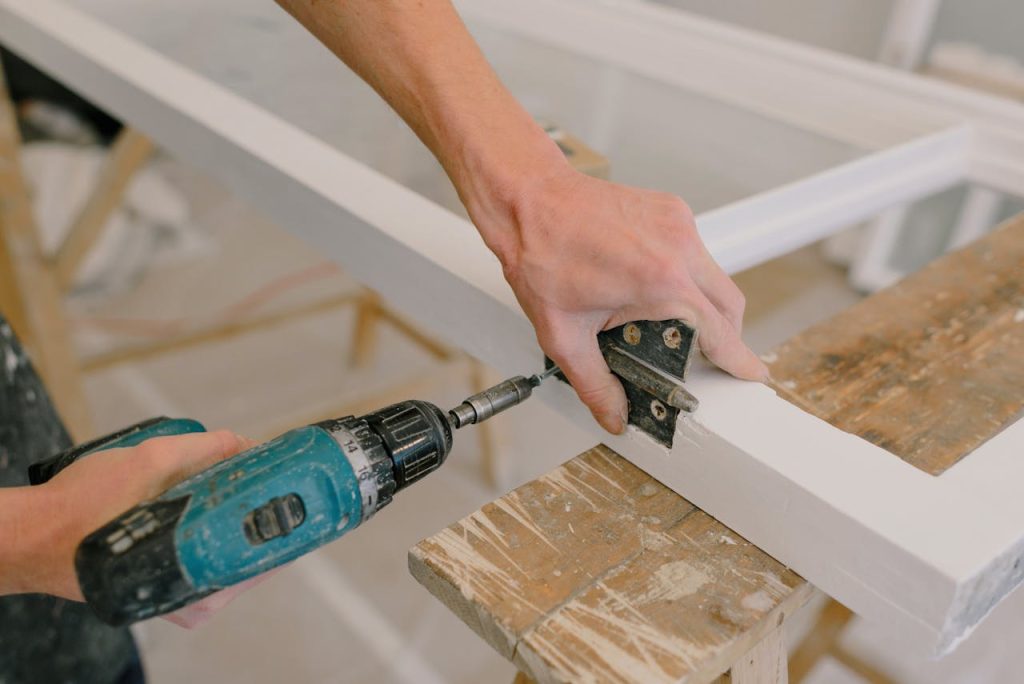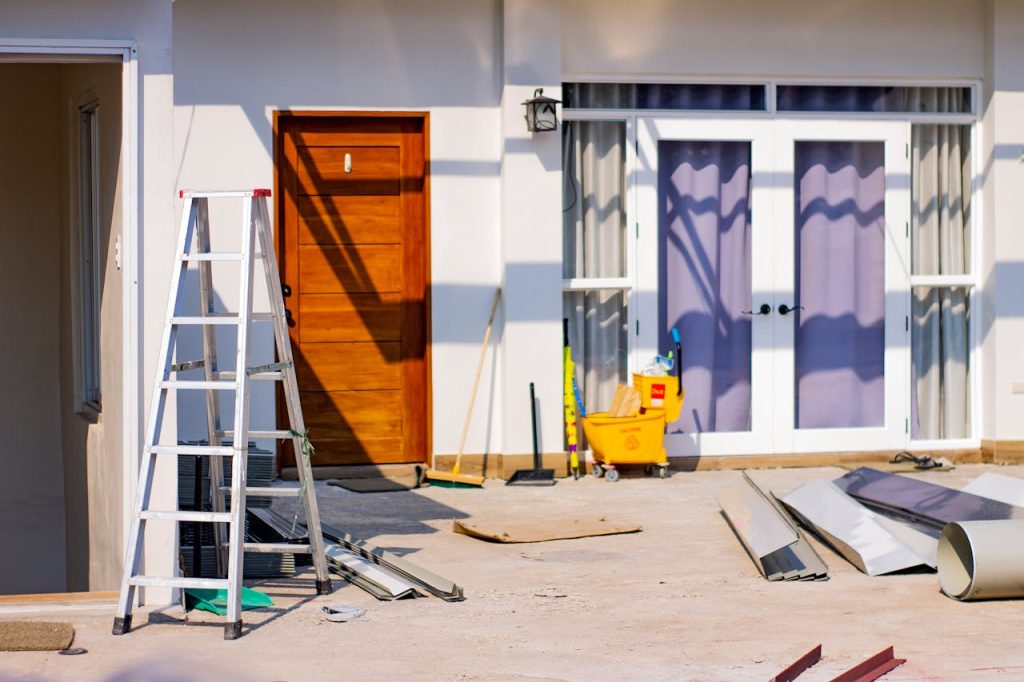You can sell your fixer-upper for the highest money if you follow our recommendations. It will demonstrate how to choose the most effective marketing strategies, make inexpensive modifications, and set the proper pricing.
Setting a Realistic Price
Many sellers make mistakes when it comes to pricing their fixer-upper. If it's too high, purchasers will be put off. If it's too low, you'll be throwing away money. Balance is the key.
Start by looking up comparable properties that have sold nearby. Pay attention to properties that sold well but needed maintenance. The best pricing guidance you have is these "comps". Recall that purchasers of fixer-uppers anticipate a bargain since they are aware that they will have to make modifications.
Use the ARV (After Repair Value) method, a favorite of house flippers. Calculate what the house could sell for post-repair and reduce it by the cost of those repairs. Most investors aim to keep their total investment (purchase price + repairs) around 70-80% of the ARV. This formula helps you pinpoint the sweet spot that attracts buyers without cutting into your profit.
Example: If your home’s ARV is $300,000 and it needs $50,000 in repairs, aim for a sale price between $190,000 and $210,000.
Pro tip: Be ready to negotiate. Buyers often factor in repair costs when making offers, so keep some flexibility in your pricing.
Boost Curb Appeal
Your house may need renovation, but first impressions are important. A sale can be made or lost based on curb appeal, particularly if potential customers are perusing internet listings.
Begin with basic landscaping. Plant some flowers, trim overgrown plants, and perhaps even spread some new mulch down. It merely needs to be tidy and welcoming—it doesn't have to be grand. Think about changing the old house numbers or repainting the front door.
Virtual staging can also work wonders, especially if the house looks rough. Digitally enhance the listing photos. Add stylish furniture or retouch worn areas. This helps buyers see the home's potential, without any physical changes.
Pro tip: The first few listing photos should highlight the house’s best features—use these to get potential buyers to stop scrolling.
Home Staging for Fixer-Uppers
"Why stage a home that needs work?" one may wonder. However, some staging is beneficial even for fixer-uppers. It assists purchasers in focusing on the potential of the house rather than the outdated wallpaper or unfinished floors.
First, tidy up. Every space ought to seem airy and light. To create the illusion of more space, use neutral décor and, if you can, draw attention to important details like huge windows, high ceilings, or roomy kitchens. A skilled stager can work their magic and make even the most difficult locations look amazing if the layout seems off.
Another excellent choice here is virtual staging, particularly for internet-based purchasers. People may get a feel of how the area can appear without the burden of actual staging by digitally adding furniture and decor.
Pro tip: If your budget allows, investing in a home stager can pay off big, especially for rooms that are difficult to visualize.
Cost-Effective Repairs
You’re selling a fixer-upper, so buyers expect some work. But tackling a few low-cost, high-impact repairs can make your home much more appealing. Focus on issues that could turn buyers away—things that scream "neglect" or "costly repair."
Here’s where you’ll get the best bang for your buck:
• Fix leaky faucets and squeaky doors.
• Repair damaged flooring or patch holes in the walls.
• Apply fresh paint in neutral colors. This simple change can transform the feel of a space.
Avoid sinking money into big renovations. Instead, prioritize functionality and safety—make sure electrical outlets work, plumbing isn’t a mess, and there are no glaring safety hazards.
Pro tip: Small fixes like these show buyers the home has been cared for, even if it needs a bit of TLC.
Pre-Listing Home Inspection
Before listing, an inspection can make all the difference. It enables you to resolve any deal-breaking concerns before buyers even see the house and demonstrate your honesty regarding the state of the property. Utilize the inspection report to foster openness and confidence among prospective purchasers.
Pro tip: Show purchasers the inspection report and point out the places that have already undergone repairs. They may feel more at ease as a result, and last-minute discussions may decrease.

Marketing Strategies
Marketing your fixer-upper isn’t just about putting it on the MLS. To stand out, you need a strategy.
Start with professional photos. Highlight the home’s potential, not its flaws. A virtual tour can give buyers a feel for the layout before they even step inside. Virtual staging here can help too, giving buyers an idea of what the house could look like once it’s fixed up.
Use social media to your advantage. The more eyes on your listing, the better. And, collaborate with a real estate agent who specializes in fixer-uppers. They’ll know how to market the home to the right audience, whether it's investors or first-time buyers.
Cash Buyers for Fixer-Uppers
If you’re in a hurry, cash buyers can speed up the process. Investors and house flippers often pay cash, meaning you can close in days instead of weeks. Plus, cash buyers are usually willing to purchase homes as-is, saving you the cost and effort of repairs.
However, keep in mind that cash offers are often lower. These buyers are looking to maximize their profits, so they typically offer less than traditional buyers. Companies like Doctor Homes specialize in buying fixer-uppers quickly and with minimal hassle.
Pro tip: Weigh the benefit of a quick sale against the price you’re willing to accept.
Renovation Loans
Some buyers may want a fixer-upper but don’t have the cash to cover both the purchase and repairs. This is where renovation loans come in.
Offering buyers information on loans like the FHA 203(k) or Fannie Mae HomeStyle can make your home more attractive.
These loans allow buyers to roll the cost of repairs into their mortgage, making it easier to afford a fixer-upper. Providing this information upfront can help buyers realize your home’s potential, even if it needs work.
Pro tip: Mention these financing options in your listing to attract more buyers.
Conclusion
Selling a fixer-upper doesn’t have to be overwhelming. With the right strategy, you can sell quickly and at a fair price. By pricing smartly, making simple repairs, and targeting the right buyers, you’ll turn that worn-out property into a hot commodity.
First impressions matter, so boost that curb appeal, stage your home (or use virtual staging), and market it effectively. And if time is of the essence, cash buyers like Doctor Homes are always an option to keep things quick and simple.
Remember: Selling a fixer-upper is about showing potential, not perfection. Plan, and stay flexible, and you’ll be closing that deal in no time.
FAQs about How To Sell A Fixer-upper House Fast
What are the most cost-effective repairs to make before selling a fixer-upper?
Focus on small repairs like fixing leaky faucets, repairing damaged flooring, and applying a fresh coat of neutral paint. These inexpensive fixes make a big difference in how buyers perceive your home. Also, making sure the electrical and plumbing systems work can reassure buyers. It can boost the home's appeal without a big investment.
How can I determine the right price for my fixer-upper?
Look at recent sales of similar homes in your area. Consider using the After Repair Value (ARV) formula to price the home competitively while leaving room for negotiation. Also, consult a real estate agent experienced in fixer-uppers. They can provide a CMA to help you understand your property's market value.
Is staging a fixer-upper worth the investment?
Yes! Staging helps buyers envision themselves in the home. Virtual staging is a cost-effective option that can digitally transform your listing photos. Staging, whether virtual or physical, also helps highlight the property’s best features and minimizes attention to its flaws. It can make rooms appear larger, brighter, and more inviting, which is crucial for homes in need of repairs.
Additionally, staged homes typically sell faster and for a higher price compared to unstaged ones, even when it comes to fixer-uppers. Finally, staging can help you stand out in a competitive market, especially when buyers are browsing online listings.
What is the benefit of a pre-listing home inspection?
A pre-listing inspection helps you identify and address potential issues before buyers see the home. Sharing the inspection report builds buyer confidence and can smooth negotiations. It also lets you make minor repairs. This could raise the home's value. It may also reduce buyers' requests for major concessions after their inspection.
Additionally, being proactive with an inspection can speed up the closing process by removing surprises that could otherwise cause delays.
What are the advantages of selling a fixer-upper house to cash buyers?
Selling to cash buyers is faster and often easier, as they’re willing to purchase the home as-is. However, cash offers are typically lower, so weigh the pros and cons. Cash buyers also eliminate the need for financing contingencies, meaning there’s no risk of the deal falling through due to loan issues.
Plus, you avoid lengthy closing periods and complex appraisals that could delay or derail traditional sales, which makes cash buyers ideal for a quick and hassle-free sale.




